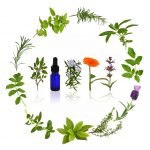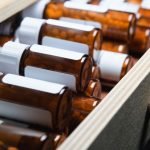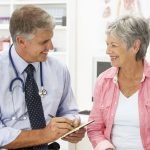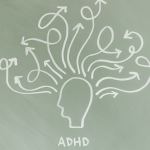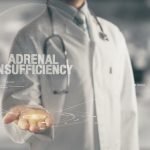Confessions of a Wounded Healer
A Dialogue Between Mentor and Student
Paul Epstein, ND
Node Smith, ND Candidate
“My name is Dr Paul Epstein and I’m a wounded healer.”
“I don’t quite understand. You’re a respected physician, teacher, writer, speaker, and mentor, striving to further the understanding of mind-body medicine in our medical culture. How can you be wounded?”
“How can I not be wounded? We are all wounded. Remember the Carl Jung quote:
The doctor is effective only when he himself is affected. Only the wounded physician heals. . . The pains and burdens one bears and eventually overcomes is the source of great wisdom and healing power for others. (Carl Jung)1
“What you need to understand here is that connecting to, or bringing awareness to the pain within ourselves, of our trauma and wounds, is what allows a physician to show more authentic empathy and compassion for another. It deepens the therapeutic bond and healing relationship. Awareness of these wounds, of my wounds, has helped me cultivate the self-compassion, self-love, and self-forgiveness necessary to heal those parts of me which have interfered with my development and success through many years. Only through realizing the Truth of my own pain and dis-ease can I hope to help guide and support others to find and be with the painful truth of theirs.”
“I understand the idea that we all have wounds, but your wounds don’t manifest as physiological disease. Without a diagnosis, how do you know that you have wounds within, wounds that need healing? And how do those wounds help you connect with people who have more overt manifestations of their pain and trauma?”
“If there is one single idea I could pass on to you, it would be that we’re all wounded to one degree or another, and these wounds affect each of us differently – body, mind, heart, spirit – yet no more or no less significantly do they impact our lives and our health. One’s suffering is one’s growth and opportunity for healing and awakening. Awareness of the presence and inevitability of suffering awakens us to the possibility of freedom. The realization and acceptance of our own personal suffering is the path to such liberation; this is the liberating experience of facing painful truth. Accepting painful truth is the first step on the path to healing. As Carl Jung said,
You are not what happened to you; you are what you choose to become. (Carl Jung)1
“Some people experience pain as fibromyalgia, or an autoimmune condition, or irritable bowel syndrome. I experience my pain emotionally and psychosocially. One key issue is the pain I have had in my relationship with my own profession and my own frustration, which I have not always handled well.”
“I have experienced some of this frustration when working with you; sometimes it sounds as if you feel you are not being heard. For instance, sometimes it seems like you’re arguing with me when I’m agreeing with you.”
“These frustrations don’t come from the profession not being interested in the topic of mind-body medicine or not wanting to hear me speak about it. There has been an unresolved conflict within me. My struggle has been my attachment to my ideas and a need to share them. I have been protective of them, and while wanting to give, have also been unwilling to let go. I have been invited to speak, yet I have sometimes pushed away those who have invited me and those who came to listen. I isolated myself and told myself that I am not being listened to, that I’m not being heard. This has been very alienating and painful. I am truly regretful for any harm these behaviors may have caused, both in my personal and professional life.
“This is the nature of my wounds.
“This is about me and my pain, whatever issues exist with mind-body medicine and the profession, right or wrong, I must continually look in the mirror, take full responsibility and let go of a self-righteous and arrogant attitude which somehow has served to protect me. I have come to realize that I have choices and resources that I didn’t have before.”
The Danger of the Unspoken
“There is one question I am compelled to ask, the first of your living questions: ‘How did you come to be this way?’”
“When I was 26 years old, my father died. The story of his life and premature death inspired my decision to become a physician. It shaped the development of my philosophy and practice of mind-body integrative medicine, exploring how biography becomes biology, emphasizing a relationship-centered approach. His death pushed me to explore how to transform stress, pain, and illness into a journey of self-healing and awakening.
“My dad was a soldier in World War II, among the thousands who stormed the beaches of Normandy on D-Day. One can hardly begin to imagine the horrors of war he faced or the toll it would take on his body and psyche.
“My dad came home a hero with gleaming medals on his chest, but in his heart carrying the emotional and psychological burdens that result from the terrors of war. Today, we understand far more about post-traumatic stress “disorder” and the implications for soldiers returning from battle, but during my childhood my dad’s wounds and internal scars were largely ignored. Dad, himself, did not want to dwell on or discuss what he had been through and had a natural desire to shield his family from the terrors of war and what it did to him. But he could not hide himself, or us, from the pain. From the time he came home, he manifested symptoms of mental and emotional distress, bouts of anxiety and depression. He was hospitalized several times and received shock treatments. He developed heart disease, underwent unsuccessful bypass surgery and died on the operating table at the age of 57.
“I had watched my dad suffer in silence for the years leading up to his death. It became clear to me that something very important had been denied and ignored in his experience. He never spoke to me about his life and what he experienced in the war. He was never provided an opportunity to express the pain and grief over what he’d been through.
“I know, deep in my soul, that his sad descent into mental and physical illness, and his ultimate death, were somehow related to what had remained unspoken. His doctors shocked his brain and tried to bypass the blockages in his heart to cure him, but unknowingly, bypassed the truth of his pain and his life.
“As a result of my father’s experience and how deeply I grieved his loss, I became driven to understand the relationship between our difficult life experiences and the manifestation of illness. I wanted to learn how to help people find authentic healing that addressed all parts of themselves – mind, body, heart, and spirit. I believe that this integrative approach to healing would have made a difference in my father’s life and health.
“Everyone has a life story. The story needs to be told and listened to with the goal of helping to understand the connection between past and current life experiences and health challenges. Only then can we begin to heal.”
Inheriting Trauma
“How did your father’s trauma of war affect you and contribute to your issues discussed above?”
“I inherited my father’s issues, epigenetically-speaking. The environment which is created through living in the presence of, or living with, another in pain is often painful and traumatic for those growing up in such an environment. This is the experience of the proverbial dysfunctional family. This is how a part of me inherited the trauma which my father experienced. I listened to my father scream at night, from flashbacks or nightmares. I would cover my ears, praying for the screams to stop. I felt frightened and alone with no understanding of what was happening or why. And having him absent from our home both physically, when he was away at the VA mental hospitals, and emotionally when he would return without affect, the result of shock treatments, all of this was extremely traumatic. There was also the shame of growing up in this type of environment. In retrospect, I was abandoned, no differently than a child is abandoned growing up in an alcoholic home or an abusive home. The inability to communicate with my father as I grew up locked in patterns of rebelliousness and opposition. I cultivated these behaviors as survival mechanisms in childhood and they became learned behavior patterns that followed me into adulthood.
“A recurring dream I have about my father may help to elucidate how this links my passionate commitment to exploring the deeper issues of the connection between biography and biology and my feeling of not being heard.
In the dream I am 7 years old. I am huddled in the corner of a long hallway in a small 3-bedroom apartment in the south Bronx, holding my father tightly in my arms. Men in white coats come to take him away. He’s clutching on tightly to me, while begging me, ‘please don’t let them take me away.’ As they pull him out of my arms I am screaming, ‘leave him alone. He only needs to feel his pain!’ But they do not listen. I keep screaming, and crying, and trying to hold on to him. Our screams and pleas are to no avail as they pull him out of my arms and take him away. And just like that, he is gone. In reality, I was 7 when my Dad had a ‘nervous breakdown.’
“In many ways, this is the lens through which I perceive my relationship to my work and career. My biggest regret is that I didn’t get the opportunity to ask my father about his story, throughout my childhood. I could see the terror in my father’s eyes, and knew it was unsafe to ‘go there.’ This is perhaps the driving force of my realizing the importance of connecting with biographies as a foundation of the healing process. I work with all my patients and students in this regard, bringing them ‘home’ to touch with mercy and love those aspects of their lives which are painful, as I have touched those aspects which bring me pain.”
Connecting With Pain As a Path Forward
“These ‘survival mechanisms’ you refer to become imprinted patterns of the body and mind and behavior in the exact same way. How did you come to realize that these painful truths were living inside of you, and causing you to struggle in these ways?”
“My father’s death broke me open and left me with a deep sadness. Pains and wounds that I didn’t know I had became conscious as they rose to the surface. The overwhelming grief I felt after his sudden passing provided an opportunity and was the gift I needed to finally open up and look inside myself. Little did I know at the time the power this dream and its meaning would have on understanding my father’s life and death and the shaping of my destiny.
“Through studying yoga, meditation, insight training, psychotherapy, guided imagery, internal family systems therapy, and recovery principles, I have been engaged in self-healing as an ongoing life process for over 30 years. I have had the good fortune to study with amazing teachers and mentors over the years – imagery with Martin Rossman, meditation with Jack Kornfield and Joseph Goldstein, transpersonal psychology with John Wellwood, healing shame with John Bradshaw, and presence with Todd Schlapfer, ND, to name a few. Learning and practicing mind-body medicine has been my healing journey. Learning how to connect with my pain, and to embrace it with love and compassion has been my healing path. Yoga and insight meditation also served to broaden the effect of more traditional psychotherapy techniques by showing me that mindfulness and presence are key to begin communicating with these wounded parts of the self. My second living question thus may be born out of these quiet moments: ‘Am I willing to listen with the ears of my heart to the other voices of myself speaking?’
“Communicating with the somatic inscription of self requires accessing the right brain, and getting the right and left sides of the brain to communicate together. Yoga and imagery, mindfulness, presence and compassion are invaluable tools I have used to facilitate this interaction. Living this journey of self-acceptance and deeper self-communication is the reason I work at this level with each and every patient, and also students and doctors I mentor. My personal journey of self-cultivation, in a very real and practical sense, is no different than my professional journey; they each support the other.
“It is very clear to me that the pain which is imprinted in our hearts and minds needs to be addressed for deeper, more authentic healing to occur. We can cause more pain when we bypass it. When it isn’t engaged, the pain it creates for us severely hinders our progression along a healing path. I speak of this in greater detail in the articles on childhood trauma and disease. This type of pain – emotional pain – doesn’t simply disappear. This is important to realize, and something I have come to understand at a deeper level through working with my own wounds, as well as those of patients, students and doctors. The goal is not simply to rid myself of these wounds, but to hold them with love and acceptance within my being; this is the journey. This is the pain which ends our suffering.”
“How can connecting to our wounds help end suffering?”
“In 2 primary ways do wounds help us; both require that we acknowledge their presence. One, when we choose to sit with our wounds, with our pain, in a wise, compassionate, and healing way, we are led in the true direction of healing. This is the idea that when we change how we look at and be with something, what we look at and be with changes. This is a shift in consciousness. This is the healing. The wonderful thing about facing and embracing our painful truth is that it puts us exactly where we need to be for healing to occur – I refer to this relationship in more detail in a previous article entitled ‘Pain as Teacher’ and in several other articles sharing my perspectives on pain, mind-body medicine, and the healing process. When I am faced with the pain of my frustration, angst, and negativity, when I notice relationships with those around me becoming strained, I am able to acknowledge what is happening, and hopefully my behavior can change, or at least I have awareness of what I am feeling and may become willing to make a change. In order to notice these things, the right and left brain must be in communication. Practices like yoga and mindfulness are so crucial to this type of self-insight.
“Second, through embracing my own wounds I am able to effectively bring my patients to the boundaries and edges of their comfort with their own pain and help facilitate an equally profound self-awareness in them. Patients or professionals I work with routinely confirm the power of this approach. I recall a student commenting that she was finally able to open [her] own heart to include even the very illness which [she] had been fighting so hard to ‘get rid of.’ Ironically, it was through this deep acceptance that real healing finally began – spiritually, emotionally and physically.
“These wounds, the pain and suffering of life is what makes us human. Realizing this, being aware of my own wounds, adds to my ability to show compassion and love during mentorship, teaching, and working with patients. My willingness to be with this pain is the essence of my success as a physician and mentor. My name is Dr Paul Epstein and I am a wounded healer, day-by-day realizing the liberating experience of facing painful truth. In the heart of the pain IS the healing.”
For more information…
(Mind-body approaches to PTSD):
(Epigenetic effects on the brain):
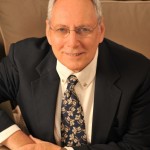
Dr Paul Epstein ND
Paul Epstein, ND is a mind-body therapist, mindfulness meditation teacher, speaker, workshop leader, and author. He graduated from NCNM in 1984, where he also directed the clinical lifestyle change program “Healthstyles.” He has successfully advocated and integrated the clinical application of mind-body medicine, mindful awareness and contemplative body-centered psychotherapy for 30 years. Paul co-founded the Israel Center for Mind-Body Medicine. He graduated from the Academy for Guided Imagery, completed the 3-year training program for Community Dharma Meditation Leaders at the Spirit Rock Meditation Center, and has trained in the “Internal Family Systems” model of psychotherapy. He practices in Westport, CT, where he was also founded the Insight Meditation Community of Fairfield County.
Dr Epstein has taught mindful healing workshops worldwide, has lectured at numerous annual conferences, and has taught courses, continuing education programs and electives at NCNM, Bastyr University, CCNM, OAND and UB. He mentors health care professionals to integrate mindfulness and mind-body therapy. He will be conducting a CCNM online training course in the fall of 2013. He is author of the book, Happiness Through Meditation, and has several other articles available. A sequel to the above article will be featured in the near future. Website: www.drpaulepstein.com; email: [email protected]; phone: (203) 722-2358.
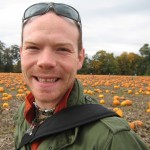 Node Smith, ND Candidate is currently a third-year naturopathic student and is mentoring with Dr Paul Epstein. He also has been elected to the NMSA national philosophy chair position for 2013-2014, through which he has hopes of strengthening the bonds between students and elders through experiential opportunities that bring together both generations to learn and grow from one another. Node is the lead coordinator for the 2013 ReVitalization Retreat and is currently working with Dr Epstein to form a year-long mind/body medicine curriculum, to increase the training offered in this important area.
Node Smith, ND Candidate is currently a third-year naturopathic student and is mentoring with Dr Paul Epstein. He also has been elected to the NMSA national philosophy chair position for 2013-2014, through which he has hopes of strengthening the bonds between students and elders through experiential opportunities that bring together both generations to learn and grow from one another. Node is the lead coordinator for the 2013 ReVitalization Retreat and is currently working with Dr Epstein to form a year-long mind/body medicine curriculum, to increase the training offered in this important area.
References
- Dunne C. Carl Jung: Wounded Healer of the Soul. Sandpoint, ID: Morning Light Press; 2000.


